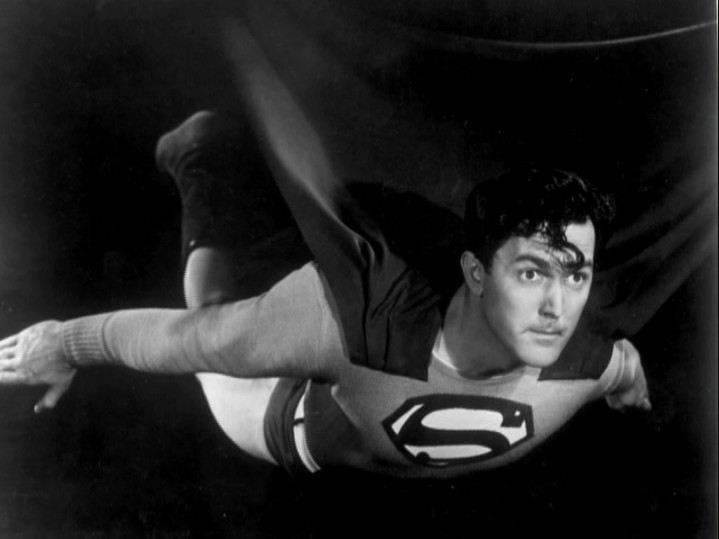Superman on Television
De-Constructing a Tabloid Caricature (Part 2 of 3)
By Don E. Smith Jr.
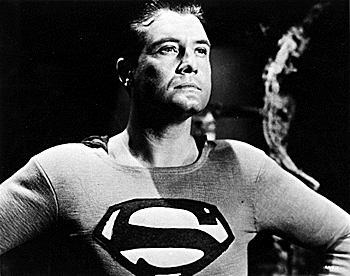 For the better of three decades, writer and musician Jan Alan Henderson has chronicled the life and death of George Reeves in the books Speeding Bullet and Behind the Crimson Cape.
For the better of three decades, writer and musician Jan Alan Henderson has chronicled the life and death of George Reeves in the books Speeding Bullet and Behind the Crimson Cape.
Reeves played Krypton's last son in the 1950s television series "The Adventures of Superman" but his life ended in the early hours of June 16, 1959.
 In the first part of the conversation with Henderson, he discussed how he became involved with Reeves or to quote Henderson, "I would say the subject matter became obsessed with me."
In the first part of the conversation with Henderson, he discussed how he became involved with Reeves or to quote Henderson, "I would say the subject matter became obsessed with me."
In the second part, Henderson discussed the kind of person Reeves was and the events surrounding the June 16th death.
[Jan Alan Henderson Photo Courtesy of Steve Randisi]
| SUPERMAN, TOO: KIRK ALYN: Q: So did you have any other Superman encounters? JAH: I also appeared on the Kirk Alyn "Superman" DVDs because Kirk was a good friend of mine. Q: How did you meet him? JAH: I met Kirk Alyn in the mid-70s at a Stunt Man's Association Meeting that was held at the Photography Center near MacAarthur Park in Los Angeles. He showed a clip from the serial, which was I was dying to see. And later started to go to a place I still frequent called Eddie Brant's Saturday Matinee and he would be in there with people like Pat Buttram, who appeared as Gene Autry's sidekick, and Buster Crabbe from the "Flash Gordon" serials.
He was a great friend and we used to go to parties together and had mutual friends people like Walter Koenig from "Star Trek" would show up at these things. You know I just knew him as a good guy and as a friend and I have his books and he autographed several lobby cards from the serials for. I got along with Kirk as did many of my other friends. Granted, we did not call up each other on the phone everyday, but we were social friends. |
(HU)MAN OF STEEL
Q: What kind of man was George Reeves?
JAN ALAN HENDERSON: One of the things about Speeding Bullet and Behind the Crimson Cape was to give George a fair shake in history. We wanted to try to take a lot of the facts that were just supermarket rag fodder and dispel them, and make him a real human being and a real actor.
I thought it was time to show who he was instead of the salaciousness that had been written about him being a horrendous depressed drunk.
Nobody [I interviewed] ever told me any of that stuff.
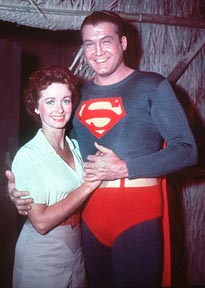
George liked to drink and he handled his booze. Quite simply, I never ever heard from any of his friends anything negative about him. Noel Neill described him as a "Southern Gentleman."
He never lost his temper and he was always gregarious and a generous human being.
How many of those come around in the world we live in?
Q: For argument's sake, say some guy from Los Angeles backed his car into George's car and Reeves went into a flying cursing tirade and you were able to have this documented, would you have put that in the story?
JAH: I would have printed it, why should I not?
This is not the Jan Henderson Story, this is the George Reeves's story.
Q: Simply, it sounds as if George's sins were no different from any other actor at that time.
[WRITER'S NOTE: It has been documented that George had a relationship with Toni Mannix from 1948 to 1958. At this time, she was married to MGM Studio head Eddie Mannix.]
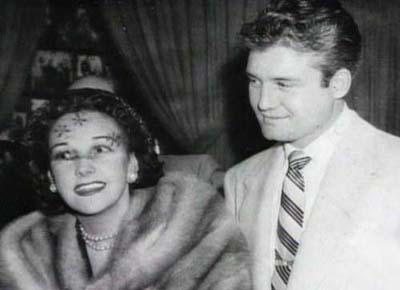 |
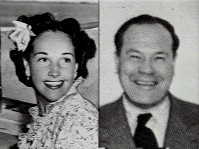 |
JAH: Well, look at Hollywood now. It is normal to have these actors hanging everything out every which way, having babies and popping them out like rabbits. To get on "TMZ" or "Extra" - what a bunch of nonsense!
Rewards for bad behavior.
In those days we had publicists and they had to run around trying to keep that stuff quiet .
You know there was an incident in Gary Grossman's book, Superman: Serial to Cereal, that said George became irritated having to entertain the kids of a neighbor of one of the directors.
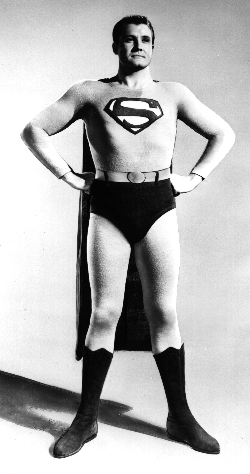 However, you have to understand this guy had to get into a suit that had about 20 pounds of foam rubber padding and it took a half hour to put on. It made his skin break out.
However, you have to understand this guy had to get into a suit that had about 20 pounds of foam rubber padding and it took a half hour to put on. It made his skin break out.
He had lifts in his boots, rubber muscles and he was running around in his underwear, as so many people described it. The man went through hell for this work
He had to pull his Superman act off under the heavy lighting. The studio lights of today are not like what they were back in George's day. Simply with being in the foam rubber padding, a woollen suit and the lights are generating 120 degrees on the sound stage, trying not to melt and let alone remembering your lines - sure he became irritated from time to time. Who wouldn't
Q: Right.
JAH: Let me add, George was the kind of guy that if he saw a grip struggling with a lighting rig - whether George was dressed in his Superman suit or Clark Kent suit, he would go over and help the guy.
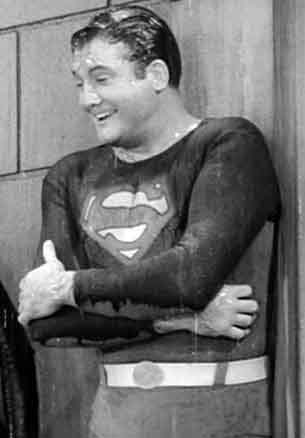 You don't get that kind of person in this industry now.
You don't get that kind of person in this industry now.
This guy was a real trooper and I think it was because he came from a theatrical background - he was at the Pasadena Playhouse and he went over to the Royal Dramatic Academy in England. He was an actor's actor and that was what we were trying to show.
Not only was he a great human being in an era where you could great human beings - and let's face it, there a lot of the people running around today who just are not like that.
Q: Right.
JAH: One other story about George and this came from Natividad Vacio.
Vacio was a school teacher as well as an actor. Natividad appeared in "The Magnificent Seven" and did loads and loads of TV. Vacio taught many kids who were Hispanic or white that were underprivileged.
What would George and Vacio do?
At Thanksgiving, they would go to George's house, cook up a bunch of food, and cook up a bunch of turkeys and take it to these people so that those people could have a holiday. Toni Mannix was also a big part of these cooking sessions.
Q: As an aside, there is a story that George made an appearance dressed as Superman where a kid showed up with a real gun. The kid pointed the gun and wanted to see Superman deflect it. However, George said, It could bounce off me and hit someone else.
Were you able to confirm that?
JAH: It was first reported in Grossman's Superman: Serial to Cereal book. However, if that really happened don't you think that would have made the papers everywhere?
I have been told that it may have been his way of getting out of being in the suit. It might have happened, it might not of happened. I wasn't there I did not see it.
Grossman also said that there were times kids would come up to George and say, "Hey, you bum, let's see you fly."
Gary is a friend, so I wouldn't want to intrude on his work. When you interview people, they tell you stories. These are stories. Speeding Bullet is full of stories, too.
You do the best you can, with what you have to work with.
GEORGE'S DEATH
Q: Were you able to get enough information to figure out definitively how George died?
JAH: Not enough to solve the mystery. A lot of people think that I have tried by all kinds of methods to implicate certain people in George Reeves's demise, but all I did was take the material that they gave out to other sources and quote.
One other thing that has to be noted here: I don't know what happened to George Reeves.
I don't whether he was killed or whether it was an accident or whether it was a suicide. To me, I view this as John F. Kennedy's death or Martin Luther King's death.
To me these are the mysteries of our time.
 Q: Did the people who talked to you say, "George was not that suicidal person you see in the tabloids!"?
Q: Did the people who talked to you say, "George was not that suicidal person you see in the tabloids!"?
JAH: Absolutely!
I used to ask them with and without the tape recorder going, "Do you think George committed suicide?"
And nobody ever indicated that to me that he was suicidal. Some may say that's one sided.
Maybe it is.
I did not load these people's words, or twist things the way people twist things in print. I let them have their say and I kept it as pristine as possible.
Of course you have to allow for grammar corrections and to make things flow on the page, as I tried to keep things readable for the readers.
I let them have their say. I was not a factor nor had an agenda.
I still don't have an agenda.
Q: Have you gotten any sort of reaction for your work?
JAH: There have been people that have been critical of my approach. Not that many, a small percentage.
My response to them is, "How else do you approach this?"
How else can you approach it?
In articles and books that have been written about George Reeves, people have come to conclusions based on their beliefs.
Q: Going back to the suicide, what was going on in George's life at this time? "The Adventures of Superman" had been canceled and he had been with Lenore Lemmon, his fiancé, and they were known to argue.
JAH: Gene LeBell told me that nothing bothered George because he could tune things out and Gene who was a bit more spirited of person and he told me that George was going to teach him how to tune things out.
George had a photographic memory. He could read a script through once and get it and pretty much be able to recite the script.
His death looks like a classic suicide, but looks can be deceiving.
However, at this point what he was trying to do, I think, was to get away from Lenore Lemmon [whom he had met in 1958] and in my opinion, he was ready to go back to work from what everyone told me.
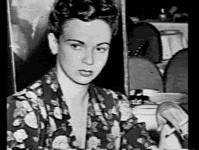 Lenore Lemmon was the type of woman that enjoyed marrying guys. Her two marriages were dramatic to put it mildly. She had a history of supposedly breaking up a lot of marriages, which she denied through out her entire life.
Lenore Lemmon was the type of woman that enjoyed marrying guys. Her two marriages were dramatic to put it mildly. She had a history of supposedly breaking up a lot of marriages, which she denied through out her entire life.
I think, to be honest with you, had he gone back to work a month after she arrived [in California from New York City where she had lived] she would have been bored and gone home.
I think he wanted to get away from Superman. I think he was going to become a fabulous director.
He directed the last three Superman shows and he had other projects in the works.
[Lenore Lemmon Photo Courtesy of Jim Nolt]
Q: What type of projects did he have in the works?
JAH: Supposedly he was going to do a science fiction picture with Phyllis Coates [who played Lois Lane in "Superman and the Mole Men" and the first season] and he sent her a script when she was moving.
 She basically said to him, Don't leave it with me now because I will lose it in the move.
She basically said to him, Don't leave it with me now because I will lose it in the move.
Let's together after I get settled and let's take a read of the script and run the script down.
Q: Hadn't there been talk of doing a seventh season of Superman?
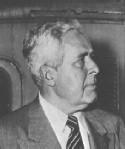 JAH: There were rumors of scripts of being written, and actor Pierre Watkin supposedly was going to play Perry White's brother [Actor John Hamilton who played White had died in 1958].
JAH: There were rumors of scripts of being written, and actor Pierre Watkin supposedly was going to play Perry White's brother [Actor John Hamilton who played White had died in 1958].
I think there was a Perry White's brother in the comic books, although don't hold me to that.
As far as the scripts being written for season seven, no one has found any evidence and even now much of that is up for debate.
Noel Neill last saw George at ZIV TV Studios, playing cards with George Blair, before he died.
Q: Is there any chance his death could have been a suicide?
JAH: Well, he had he had cut some tracks with Natividad Vacio and his band, and he did a Fair Tour with Nati, Noel Neill, and Gene LeBell in the Fall of 1957, before they started shooting the last season.
Unfortunately, Reeves bankrolled the whole endeavor himself. Because his manager and supposed agent didn't do the proper preliminary work, George lost his shirt on that and there is evidence that he could have been depressed about that.
Q: However, everyone gets depressed.
JAH: Right!
I have things that depress me and everyone gets depressed. Depression is part of life. Having bad times and frustrations are part of life.
I will say, there are rumors he was suicidal long before Superman, but nobody I interviewed ever told me anything like that.
Q: Can you give a brief sketch of the events that occurred before George's death?
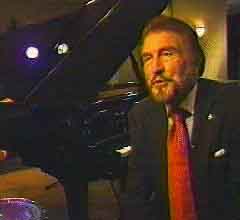 JAH: Merrill Sparks, was the piano player for a restaurant (Paul's Steak House) that used to be at Burton Way and Doheney Drive in Los Angeles, and he told me he saw George and Lenore come into the restaurant [on June 15] and have dinner. After dinner Lenore was chatting up all the patrons of the bar, getting free drinks.
JAH: Merrill Sparks, was the piano player for a restaurant (Paul's Steak House) that used to be at Burton Way and Doheney Drive in Los Angeles, and he told me he saw George and Lenore come into the restaurant [on June 15] and have dinner. After dinner Lenore was chatting up all the patrons of the bar, getting free drinks.
George sat at the piano bar all by himself to listen to Sparks play.
Merrill also told me he could reach out and touch him, that is how close George was to him. He described George as being completely composed and immaculately dressed and in a retrospective mood while Lenore entertained the bar patrons.
Sparks said during his break, which is around 9:30 p.m., he saw George and Lenore waiting for their car. Lenore was going on at George about getting married - which was one of her favorite subjects.
According to Sparks, she was saying that she wanted to get married in Baja California.
George stood there and put up with all the shenanigans, and they got in the car and went home.
The two retired to bed and for some reason, Lenore Lemmon got up and turned on the porch light.
There is an old story that if the porch light was on at George's house "Chez Reeves" was open for business. Whether that is true, I don't know. George had an open house; friends were entertained at all hours.
I just heard that as an anecdote and I reported on that in the book. I don't know whether it is true; a lot of people want to take that one to the bank.
But anyway about 12:30 a.m., Lenore Lemmon, William Bliss, writer Robert Condon - brother of Richard Condon - and Carol Van Ronkel were downstairs in the living room.
However, George supposedly came down stairs when Bliss showed up, and told bold Bliss off about arriving at a late hour, and then went upstairs and shot himself. This was about 1:20 a.m.
After that, Lenore said, See that George is going to go upstairs and shoot himself. That's the official version. All of this might have occurred earlier in the evening. That's the official story.
How much of that is true, I don't know.
[Merrill Sparks Photo Courtesy of Jim Nolt]
[WRITER'S NOTE: According to George Reeves's obituary, which appeared in the June 17, 1959 issue of The New York Times, the following occurred about 2:30 a.m.:
- Mr. Reeves argued with Mr. Bliss over the lateness of the hour, then apologized and said:
"I'm tired: I'm going to bed."
- "He's going to shoot himself."
The others treated her remark as a joke, but she unexplainably continued:
"He's opening a drawer to get the gun."
Then a shot was heard.
"See there - I told you!" Miss Lemmon exclaimed.]
JAH: I have seen that she said, "I can't tell you for a million dollars why I said that."
In my opinion, it would have been impossible to hear the night table drawer open from the living room.
Q: I spoke with a psychologist about suicides and I asked if there was significance between shooting one's self versus overdosing on pain killers or slitting your wrists.
And the psychologist said to me, "To shoot one's self is a very violent and angry way to kill yourself. Essentially a person like that is seeking to make a statement."
JAH: Quite possibly.
But why would someone want to commit suicide when you have the likes of Bill Bliss, Robert Condon and Carol Van Ronkel downstairs? Bliss was the only one to piss George off.
Maybe George was making a statement, maybe not. These were not George's old friends, these were new people in George's life.
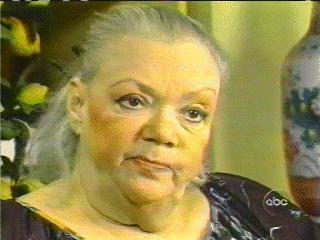 In one of her last interviews, Lenore claimed George didn't come downstairs the night of his death.
In one of her last interviews, Lenore claimed George didn't come downstairs the night of his death.
If George didn't come downstairs, why would he be angry? George's real friends weren't around when he was with Lenore. Gene LeBell was, and so was Nati Vacio, but they were exceptions.
Why would you pick that moment to commit suicide? Wouldn't you wait until everyone is out of the house if you were that pissed off ?
If he could tune things out, when would he be upset?
None of this adds up.
[Lenore Lemmon Photo Courtesy of Jim Nolt]
Q: Again, let me note that you have said time and time again you do not know how George died, nor are you willing to make a statement claiming how he died one way or the other.
But you do, shall I say, rule out certain speculations.
For instance, you do not believe he was murdered by a hitman or an assassin?
JAH: How is a hitman going to sneak past what can be only described as french doors (which are doors with windows in them that were open at the time) past Lenore Lemmon and Bill Bliss up a stairwell that is probably two feet wide at best that leads up to the guest room and the bed room.
This is part of the Eddie Mannix theory; that Eddie or Toni had George rubbed out
How is somebody not going to see that? The people in the living room would have to have been passed out.
Q: Right.
JAH: I have heard stories that rven Eddie Mannix himself put a ladder up against the wall of the house and shot George Reeves and threw the gun at Reeves's feet.
My response is, where did the ladder go? How did a shell casing end up under his body? This is one of the first stories. Why wasn't there a burn on George's back from the shell casing? Why wasn't that reported in the autopsy?
If you were ever in the area of George's house and if you knew the layout of the houses around that area, you have to hop a couple of fences. And you would have to do this in the dark.
Q: What do you make of the theory that Eddie Mannix had George killed because he dumped Toni?
JAH: That is ridiculous, and why would Eddie Mannix kill George over the affair? George had had a long affair with Tony Mannix, Eddie's wife.
In fact George and Toni had been an item long before she consented to marry Eddie. Eddie knew George was part of Toni's life, and so did everyone else.
Eddie had been wooing her since the early 1940s. Why would he go bump the guy off when Toni and Eddie had an open relationship? At this time, Eddie had had his own mistress. I don't buy this one.
Eddie had to retire from MGM in 1956. He had heart problems and he had severe health issues at the time of George's death.
==
This interview is Copyright © 2009 Steven Younis. It is not to be reproduced in part or as a whole without the express permission of the Superman Homepage.

